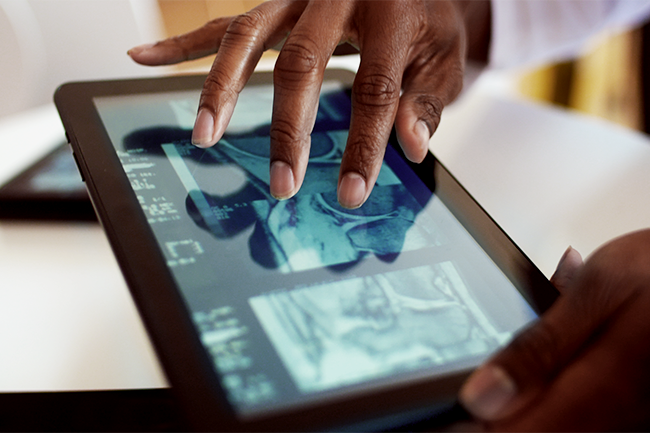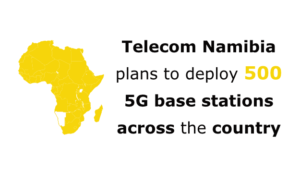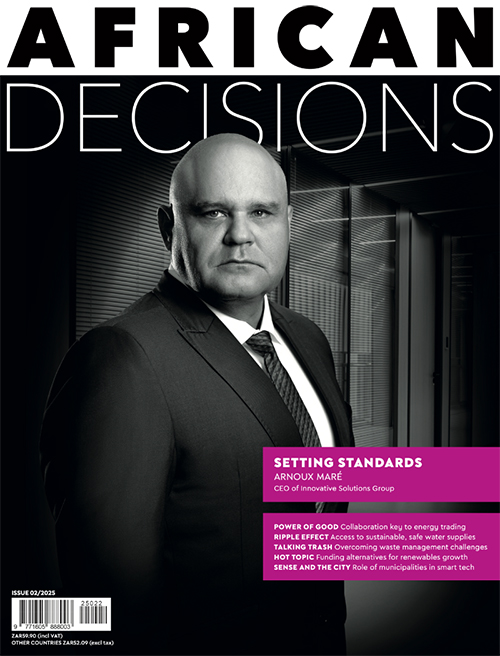It should come as no surprise that the African continent is emerging, tentatively, from the pandemic crisis with a slightly more robust immune system of its own, in the form of an e-health boom.
‘[This year] has been a breakthrough year for e-health investment.’ That’s the prognosis of a 2020 report by journalists Tom Jackson and Gabriella Mulligan, co-founders of Disrupt Africa, a news portal for African start-ups.
The report, which explores the African e-health start-up ecosystem, tracks the phenomenal rise of these start-ups, the influx of investors and explosion of innovation based on data gathered from January 2015 to June 2020. ‘More than half the sector’s total funding since January 2015 – US$169 736 800, secured by 75 companies – was raised in the first six months of [2020]. Twenty e-health companies have banked US$90 425 000 in 2020 so far – 53.3% of all health-tech funding since Disrupt Africa started tracking five years ago.’
Why should it come as no surprise? Well, the growth trend was already there. Africa has the fastest-growing digital consumer market in the world, and investment in tech start-ups was already on an upward trajectory. An African tech start-up funding report, also released by Disrupt Africa, found that ‘a key feature of the African start-up landscape in 2020 is the growth in the number of investors on the continent. This year, we counted at least 370 active investors; marking 42.8% growth on the previous year, when our data tracked 261 investors. This figure was in itself a 68.4% rise on the 155 investors we found in 2018’.

When the pandemic hit, the fault lines of Africa’s health systems were thrown into stark relief. In many senses, the continent was on its own, not only because of lockdown measures, but also because foreign solutions are not always a fit for African challenges. As at late-January 2022, there had been more than 238 000 COVID-19 fatalities in Africa, and the virus has also undermined progress made in reducing other diseases such as malaria, TB and HIV/Aids, which continue to be among the leading causes of death on the continent.
Yet the pandemic also brought with it opportunities – some even calling it a blessing in disguise for the continent’s e-health sectors. A policy paper released in August 2021 by Vodacom on digital public health engagement in sub-Saharan Africa, describes a ‘health sector on the verge of transformation’. It found that 41% of internet users in Africa regularly use their mobile phones to search for health information, ‘creating vast potential for countries to deliver access to healthcare digitally’. The forecast is that by 2025, smartphone reach in sub-Saharan Africa will increase by almost 70%.
‘In many ways, the pandemic has also opened our eyes to new possibilities in the healthcare space,’ says Vodacom Group CEO Shameel Joosub. ‘Our ability to deliver on the promise of digital solutions at scale presents enormous opportunity – not only when it comes to the reach of healthcare services, but also to dramatically improved health outcomes at decreased costs.’
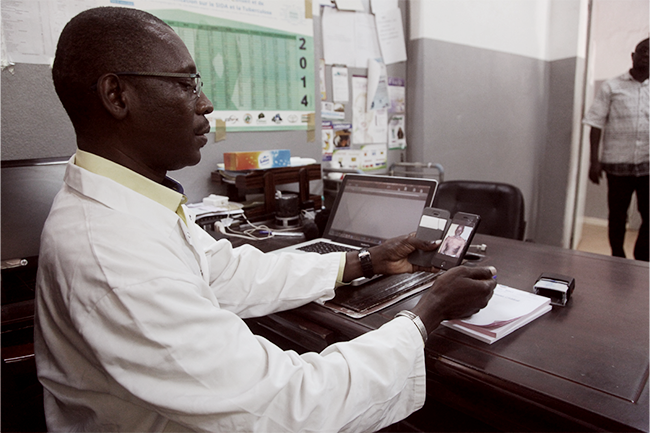
The overall consensus is that e-health companies have been quick to act and adapt, with one CEO claiming the pandemic moved the sector as a whole forward by five to 10 years in just two weeks.
‘The pandemic prompted huge uptake,’ says Jackson. ‘The kind of growth start-ups would have had to work extremely hard to achieve over a five- or 10-year period was achieved in weeks, as behaviour change was forced on people.
‘The result is a new attitude towards remote health, and though many people may revert to old ways of doing things [as the pandemic subsides], the sector has received a huge boost from the “going virtual” process that resulted from the pandemic and resulting lockdowns.’
He adds that ‘there is a lot to be excited about around easing access and affordability especially, but personally I believe mobile diagnostics platforms that can tell rural dwellers whether they are, for example, losing their hearing, or have malaria, could be extremely impactful’.
By this point, you may be wondering – what exactly is e-health? Obviously, it has to do with health services in the digital space, but what does that mean?
The most basic definition is ICT aimed at improving health outcomes, and can include the use of any electronic medium (email, text messaging, video calls, push notifications, websites and mobile-based apps). This encompasses everything from collating health records to remote diagnostic solutions to apps that help you find an available doctor in your area.
Still, without awareness of how, specifically, the technology is being harnessed in the health sector, it’s hard to form a picture of the immense possibility it holds.
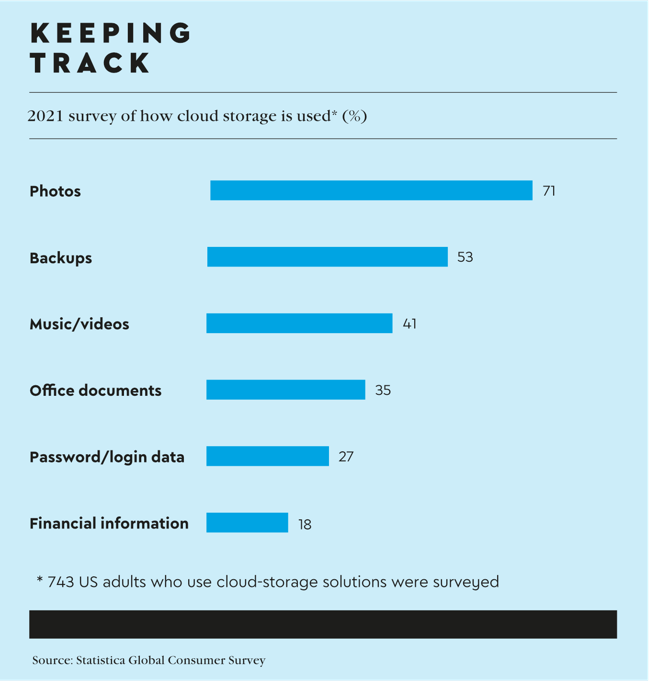
Toby Shapshak, editor of Stuff magazine South Africa and tech expert with a special interest in African innovation, believes ‘there is huge potential for any health services in Africa, given how poor these services are generally throughout the continent’.
He shares e-health initiatives that stand out for him. ‘One health company – Baobab in Malawi – is working on digitalising health records so that if a person or clinic loses their records, there is still a history of them. One of the Baobab founders told me he was visiting a clinic and the security guard was using the binder of paper records as toilet paper. It may only be one anecdotal case, but there must be thousands of patients’ details that are simply lost or mislaid because paper is such a poor way to keep records – unless it is looked after correctly.’
There is another clever service called Signapps, he adds, ‘which allows doctors to communicate with specialists and share patient information – which is being used by two hospitals in KwaZulu-Natal, South Africa, for treating burn patients. And arguably one of the best ideas I have seen is a new way to do doctor visits. There are two great examples: Epione Health Villages, which has opened its first centre in Rose bank, Johannesburg, and GP Online, a new way for GPs to communicate’.
There are many other e-health start-ups, such as GoMedical in Benin, which helps users book an appointment with a doctor in their area – that may not sound very revolutionary until you consider that, before, many patients would opt for simply arriving at the surgery and waiting all day for medical assistance. Not a good idea during a pandemic. In Nigeria, FD-Detector is an app that detects fake medications (a widespread problem throughout Africa) by scanning the bar code to authenticate it and verify its expiration date. Meanwhile, in Kenya, Ilara Health allows nurses to take samples and tests using digital equipment, under the electronic supervision of a doctor, communicate the results and arrive at a diagnosis – giving those in rural areas access to medical services where previously there were none.
In Cameroon, OiuCare, an e-health platform that offers access to doctors, medical data and medical facilities, adapted its platform during the pandemic to offer real-time, official information on the spread of the disease in Cameroon and across the world, as well as a forum on which users could ask questions about COVID-19 and receive answers from a health professional.
Whether or not Africa’s e-health start-up landscape will continue on its current trajectory is difficult to predict. Infrastructure is essential, and government buy-in is a must in order to secure adequate support for e-health initiatives. Thankfully, this seems to be the case, according to Vodacom’s report. ‘Governments are accelerating formal digital health strategies – 41 out of 54 African countries have a digital health strategy in place.’
Jackson cautions that ‘while funding is flooding into the space, it remains to be seen if linkages can be established with governments and providers, and if sustain able business models can be found. Many e-health start-ups have developed platforms that help connect poorer, more rural Africans, many living on US$1 or US$0.50 a day, with quality healthcare. How do you monetise these solutions? So for all the uptake these start-ups had during COVID, many are still figuring out how to properly monetise that uptake, and find a way of impacting those that need it most while also making their start-ups successful enough financially to justify investor interest. That is quite a challenge’.

